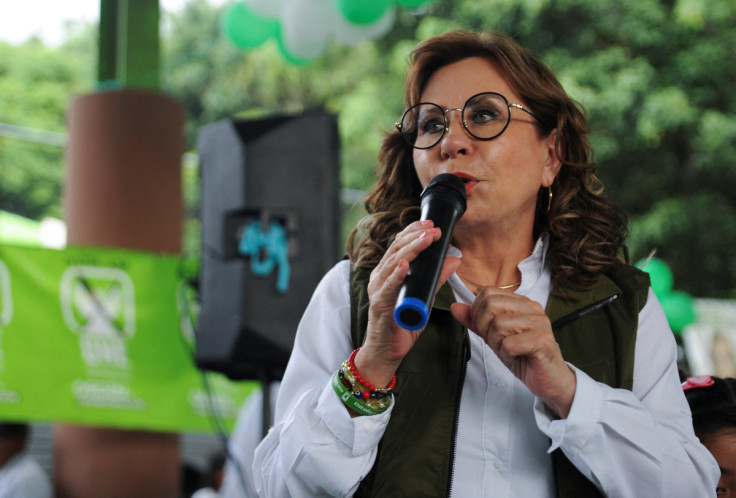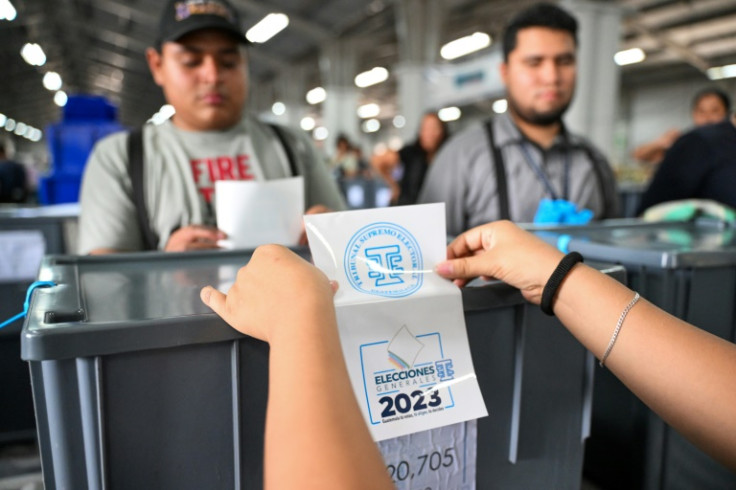Analysis: Why Guatemala's Election Was Frozen
KEY POINTS
- Guatemala's general election ended with a presidential run-off required in August
- The election results were challenged, and now the certification of results is suspended
Guatemala's general election ended without an outright winner for the office of president, forcing an Aug. 20 run-off.
The Central American country held a general election on June 25 without any presidential candidate receiving the required 50% plus one additional vote to win.
According to the Americas Society/Council of the Americas, the most popular choice was actually no choice. About 24% of voters cast a null or blank ballot for president in protest of the disqualification of many candidates and the remaining choices left in the election.
The Aug. 20 run-off is between Sandra Torres and Bernardo Arévalo, the two leading candidates from the general election. But now, even this matchup is in question.
After Arévalo took second place in the general election, several political parties, including the incumbent party and the party of Torres, according to the Associated Press, challenged the results. As a result, Guatemala's Constitutional Court froze the certification of results.

With the certification frozen, international observers are alarmed. Normally, election challenges are "contemplated within the electoral legislation in Guatemala," according to Dinorah Azpuru, a professor of political science at Wichita State University's Fairmount College of Liberal Arts and Sciences. The current suspension of the certification of elections results is "unprecedented," she said in an interview with the International Business Times.
Currently, the Constitutional Court is demanding a "revision of the 'actas' (summaries from each voting table)" and is transferring the jurisdiction of the certification freeze to the Supreme Court of Justice of Guatemala. So far, the Supreme Electoral Tribunal is complying and calling for a revision within five days.
These challenges to the election are baseless, Azpuru said. Guatemala's election counting is considered "reliable," as the election tables are "coordinated by over 100,000 volunteers" and there are "fiscales (appointees) from each party at each one of the tables," according to Azpuru.

Those challenging the election are claiming fraud, but "the rapid count and other parallel mechanisms of observation of the elections all confirmed that there was absolutely no fraud," she said.
The evidence was also backed by external observers, including the United States, Organization of American States (OAS), and the European Union, which were all invited to oversee the election. These observers are asking Guatemala to "safeguard the election."
Many sectors within Guatemala raised red flags with the Constitutional Court's decision, and are publishing statements asking for the safeguard of the results of June 25 election and hold the Aug. 20 election as scheduled.
Azpuru, an expert in democratization and a co-author of the book "Building Democracy in Post-Conflict Societies, Guatemala and El Salvador in Comparative Perspective", said only four political parties remain in Guatemala which are asking for the revision process and recount to continue.
One of them is the incumbent's party, and the other is the party of Zury Rios, one of the losers of the general election.
Azpuru said she hopes "after the five days given to the Electoral Tribunal to revise the 'actas', the certification of the winners at all levels will occur, and at that point, they can launch the runoff presidential election set for August 20th."
But she also admitted that it is difficult to tell what will happen at this point. Even if the run-off continues, it will be "45-days of bitter campaigning and misinformation."
With the five-day period coming to a close, the international community is watching for the next decision of the court.
© Copyright IBTimes 2024. All rights reserved.






















